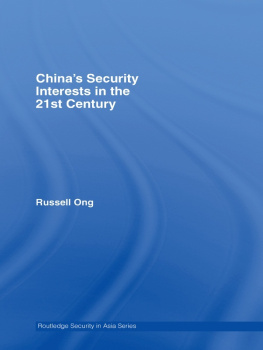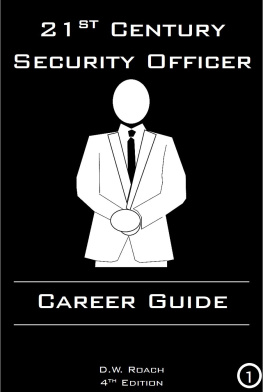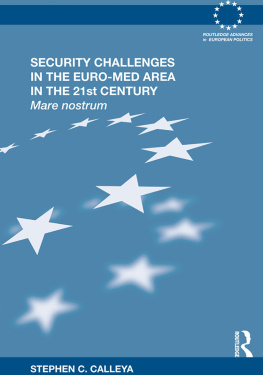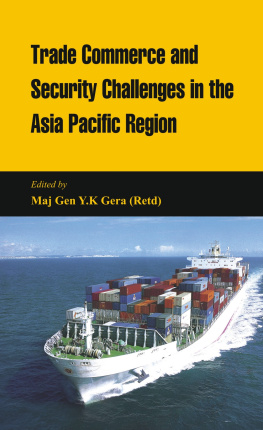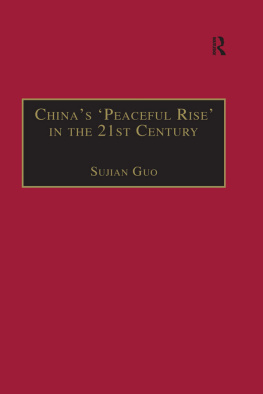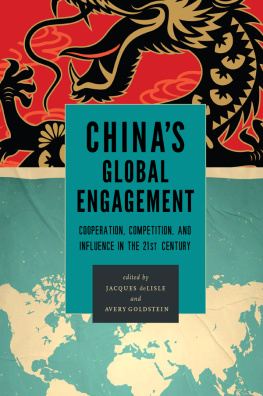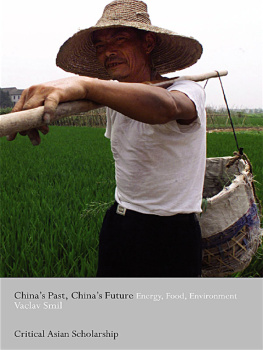Russell Ong - Chinas Security Interests in the 21st Century
Here you can read online Russell Ong - Chinas Security Interests in the 21st Century full text of the book (entire story) in english for free. Download pdf and epub, get meaning, cover and reviews about this ebook. year: 2006, publisher: Routledge, genre: Politics. Description of the work, (preface) as well as reviews are available. Best literature library LitArk.com created for fans of good reading and offers a wide selection of genres:
Romance novel
Science fiction
Adventure
Detective
Science
History
Home and family
Prose
Art
Politics
Computer
Non-fiction
Religion
Business
Children
Humor
Choose a favorite category and find really read worthwhile books. Enjoy immersion in the world of imagination, feel the emotions of the characters or learn something new for yourself, make an fascinating discovery.
- Book:Chinas Security Interests in the 21st Century
- Author:
- Publisher:Routledge
- Genre:
- Year:2006
- Rating:5 / 5
- Favourites:Add to favourites
- Your mark:
- 100
- 1
- 2
- 3
- 4
- 5
Chinas Security Interests in the 21st Century: summary, description and annotation
We offer to read an annotation, description, summary or preface (depends on what the author of the book "Chinas Security Interests in the 21st Century" wrote himself). If you haven't found the necessary information about the book — write in the comments, we will try to find it.
Chinas Security Interests in the 21st Century — read online for free the complete book (whole text) full work
Below is the text of the book, divided by pages. System saving the place of the last page read, allows you to conveniently read the book "Chinas Security Interests in the 21st Century" online for free, without having to search again every time where you left off. Put a bookmark, and you can go to the page where you finished reading at any time.
Font size:
Interval:
Bookmark:
Taiwans defense against the air threat from mainland China
Edited by Martin Edmonds and Michael M. Tsai
Leszek Buszynski
Edited by Martin Edmonds and Michael M. Tsai
Edited by Kwa Chong Guan and John K. Skogan
Russell Ong
by Routledge
2 Park Square, Milton Park, Abingdon, Oxon OX14 4RN
by Routledge
270 Madison Ave, New York, NY 10016
A catalogue record for this book is available from the British Library
A catalog record for this book has been requested
ISBN10: 0-203-96222-2 (ebk)
ISBN13: 978-0-203-96222-0 (ebk)
Font size:
Interval:
Bookmark:
Similar books «Chinas Security Interests in the 21st Century»
Look at similar books to Chinas Security Interests in the 21st Century. We have selected literature similar in name and meaning in the hope of providing readers with more options to find new, interesting, not yet read works.
Discussion, reviews of the book Chinas Security Interests in the 21st Century and just readers' own opinions. Leave your comments, write what you think about the work, its meaning or the main characters. Specify what exactly you liked and what you didn't like, and why you think so.

